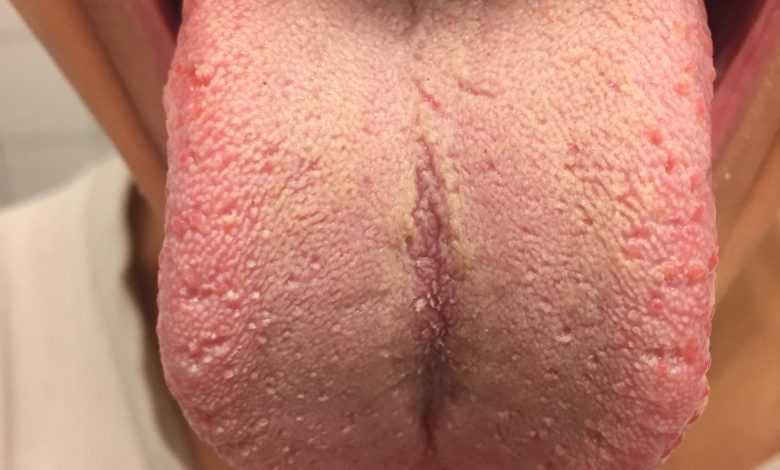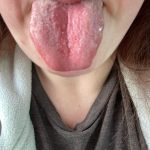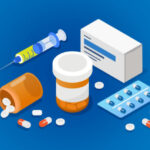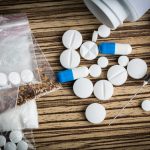List of Medications That Can Cause Dry Mouth (Xerostomia)

What is dry mouth?
Dry mouth, also known as xerostomia, occurs when the salivary glands in your mouth don’t produce enough saliva. This condition causes a parched, or dry, feeling in your mouth. It can also cause other symptoms, such as bad breath, a dry throat, and cracked lips.
Saliva is a necessary part of your digestion process. It helps moisten and break down your food. It also is a major defense mechanism to help your body maintain good dental health, protecting your mouth from gum disease and tooth decay.
Dry mouth isn’t a serious medical condition on its own. However, it’s sometimes a symptom of another underlying condition that requires treatment. It can lead to a range of health problems, including tooth decay, gum disease, and difficulty swallowing. Many medications can cause dry mouth as a side effect, so it’s important to be aware of which drugs may be contributing to your symptoms.
List of Medications That Cause Dry Mouth
There are numerous medications that can cause dry mouth (xerostomia) as a side effect. Here are 10 classes of medications that are known to commonly cause dry mouth:
Many antidepressants, including tricyclics and selective serotonin reuptake inhibitors (SSRIs), can cause dry mouth as a side effect. These medications work by altering the levels of neurotransmitters in the brain, which can affect the production of saliva. Commonly prescribed antidepressants in the U.S. include Vilazodone (Viibryd), Citalopram (Celexa), Sertraline (Zoloft), Fluoxetine (Prozac Weekly, Prozac), Trazodone (Desyrel), Escitalopram (Lexapro), Paroxetine (Paxil, Paxil CR) and Venlafaxine (Effexor, Effexor XR).
Antihistamines
Antihistamines are commonly used to treat allergies and colds, but they can also cause dry mouth as a side effect. These medications block the production of histamine, which can reduce allergy symptoms, but can also lead to a decrease in saliva production. Examples of these drugs include Diphenhydramine (Benadryl), Brompheniramine (Children’s Dimetapp Cold), Chlorpheniramine (Chlor-Trimeton), Clemastine (Dayhist), Cyproheptadine (Periactin), and Dexchlorpheniramine Dimenhydrinate (Dramamine)
Decongestants
Decongestants are often used to treat nasal congestion, but they can also cause dry mouth as a side effect. These medications work by narrowing the blood vessels in the nasal passages, which can reduce swelling and congestion but can also decrease saliva production. Common decongestants include Afrin, Dristan, Vicks Sinex (oxymetazoline), Sudafed PE, Suphedrin PE (phenylephrine), and Silfedrine, Sudafed, Suphedrin (pseudoephedrine)
Diuretics
Diuretics are used to treat high blood pressure and other conditions that cause fluid retention, but they can also cause dry mouth as a side effect. These medications work by increasing the amount of water and salt excreted by the kidneys, which can help to lower blood pressure. However, they can also cause a decrease in saliva production, leading to a dry mouth. Examples of diuretics include Aldactone (spironolactone), Bumex (bumetanide), Demadex (torsemide), Esidrix (hydrochlorothiazide), Lasix (furosemide) and Zaroxolyn (metolazone)
These medications are used to treat certain mental health conditions and can cause dry mouth as a common side effect. This happens because these medications can affect the salivary glands, reducing the amount of saliva produced, which can cause dryness and discomfort in the mouth. Medications that come under the antipsychotics include risperidone (Risperdal), quetiapine (Seroquel), olanzapine (Zyprexa), ziprasidone (Zeldox), paliperidone (Invega), aripiprazole (Abilify) and clozapine (Clozaril).
Anti-anxiety medications
Benzodiazepines and other anti-anxiety medications can cause dry mouth by reducing saliva production. Many medications used to treat anxiety, including benzodiazepines can cause dry mouth when there is a decrease in the production of saliva. The most common anti-anxiety drugs are alprazolam (Xanax), clonazepam (Klonopin), chlordiazepoxide (Librium), diazepam (Valium), and lorazepam (Ativan).
Blood pressure medications
Certain types of blood pressure medications, can cause dry mouth as a side effect. Common blood pressure medications that can cause dry mouth include diuretics, beta-blockers, and calcium channel blockers. Beta-blockers can reduce saliva production by blocking the action of certain hormones that stimulate salivary gland function. Calcium channel blockers can interfere with nerve signals that control salivary gland function.
Muscle relaxants
These medications are commonly used to relieve muscle spasms and can cause dry mouth as a side effect. Many muscle relaxants, such as cyclobenzaprine, methocarbamol, and baclofen, can cause dry mouth as a side effect. Muscle relaxants can cause dry mouth because they can interfere with the normal functioning of the autonomic nervous system. This system is responsible for regulating many of the body’s involuntary functions, including salivation. Muscle relaxants can block the signals sent by the nerves that control the salivary glands, leading to a reduction in saliva production.
Additionally, some muscle relaxants may have anticholinergic properties, meaning that they can block the action of acetylcholine, a neurotransmitter that helps to stimulate salivary gland activity. When acetylcholine is blocked, saliva production is decreased, which can lead to dry mouth.
Opioids and other pain medications can cause dry mouth as a side effect. One of the ways in which pain medications can cause dry mouth is by affecting the nervous system. Pain medications such as opioids, which are commonly used to treat moderate to severe pain, can interfere with the autonomic nervous system, which controls various bodily functions, including salivary gland activity. This can lead to decreased saliva production and dry mouth.
Another way in which pain medications can cause dry mouth is by affecting the composition of saliva. Some pain medications, such as nonsteroidal anti-inflammatory drugs (NSAIDs), can change the viscosity or thickness of saliva, making it more difficult to swallow and causing a sensation of dryness in the mouth.
Additionally, some pain medications can cause dehydration, which can also lead to dry mouth. This is especially true for pain medications that are associated with nausea or vomiting, as these symptoms can cause a person to lose fluids and become dehydrated.
Anti-Parkinson’s medications
Drugs used to treat Parkinson’s disease, such as levodopa and carbidopa, can cause dry mouth as a common side effect. These drugs can interfere with the normal functioning of the salivary glands, which normally produce saliva to keep the mouth moist.
Levodopa is converted into dopamine, which is responsible for the regulation of the autonomic nervous system, which controls glandular secretions, among other things. Dopamine agonists also affect the autonomic nervous system and can cause a decrease in production and release of saliva. Dry mouth can be a bothersome side effect of Parkinson’s medications, as it can make it difficult to eat, speak, and swallow comfortably.
Many chemotherapy drugs can cause dry mouth as a side effect, which can lead to other oral health problems such as tooth decay and gum disease. Chemotherapy drugs can cause dry mouth through a number of mechanisms. One of the primary ways in which chemotherapy drugs cause dry mouth is by damaging the salivary glands, which are responsible for producing saliva.
Chemotherapy drugs can damage the cells in the salivary glands that produce saliva, leading to a decrease in saliva production. This can result in a dry, sticky feeling in the mouth, difficulty swallowing or speaking, and an increased risk of oral infections.
In addition, some chemotherapy drugs can also affect the nerves that control the salivary glands, further reducing saliva production. Finally, chemotherapy drugs can cause inflammation of the mucous membranes in the mouth, which can also contribute to a dry mouth.
How To Prevent Drug-Induced Dry Mouth
If you are undergoing chemotherapy treatment or taking medications that can cause dry mouth, there are several steps you can take to prevent or minimize dry mouth:
1. Stay hydrated: Drinking plenty of water and other non-sugary fluids can help keep your mouth moist and prevent dry mouth.
2. Use sugar-free gum or candy: Chewing on sugar-free gum or sucking on sugar-free candy can stimulate saliva production and keep your mouth moist.
3. Avoid caffeine and alcohol: Both caffeine and alcohol can contribute to dehydration and exacerbate dry mouth symptoms.
4. Avoid tobacco: Smoking or using other tobacco products can worsen dry mouth symptoms and increase the risk of oral health problems.
5. Use a humidifier: Sleeping with a humidifier in your bedroom can help add moisture to the air and prevent dry mouth symptoms.
6. Practice good oral hygiene: Brushing your teeth and tongue at least twice a day and flossing daily can help prevent oral health problems that can be caused by dry mouth.
7. Talk to your healthcare provider: Your healthcare provider may be able to adjust your medication dosage or switch you to a different medication that is less likely to cause dry mouth.
By taking these steps, you can help prevent or manage drug-induced dry mouth and maintain good oral health during your treatment.





